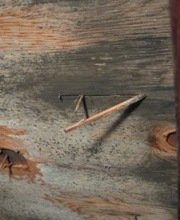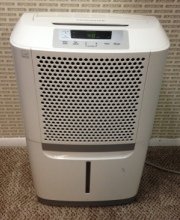Find a Mold Specialist Now
Click or Call, Toll-Free 24/7
Hardwood Floor Water Damage
Hardwood floor water damage can be tricky to repair and hardwood floors are expensive. They are beautiful, though, when maintained properly and can add value to your home. You’ll want to care for your hardwood floors properly.
If your home has been flooded or if you’ve had a pipe break or experienced some other kind of water damage, it’s important to deal with the water damage correctly and as quickly as possible in order to save your floor. We’ll tell you how to deal with water damage to hardwood floors. We’ll also give you some tips for preventing water damage to hardwood floors. For information on dealing with water damage to other types of floor coverings, just follow the link.
Preventing Hardwoods Floor Water Damage
They say an ounce of prevention is worth a pound of cure and that’s certainly true when it comes to hardwood floors. You can’t control the weather, can’t prevent floods, and can’t always prevent pipes from breaking or leaks from developing. You can, however, deal with any problems that do develop promptly in order to minimize damage.
Although some things are not in your control, there are things you can do to help prevent problems. Make sure you close windows when it rains and wipe up any water spills right away. Keep your roof in good repair.
You might want to use something like tile or linoleum in kitchens, bathrooms and laundry rooms, areas more prone to water damage since there are pipes that can break and appliances that can leak. We recommend not using carpet in those rooms for the same reason. If you do have hardwood floors in those areas, be sure to check for any water leaks regularly (it’s actually wise to do that anyway, no matter what kind of floor you have, to prevent mold).
Dealing with Hardwood Floor Water Damage
If your hardwood floors have been damaged by water, the first thing you need to do is to remove excess water. Soak it up with absorbent towels or mop it up as quickly as possible. If your home has been flooded or there is a significant amount of water for some reason, you may need a shop vac or other equipment to remove the water.
 Hardwood Floors Damaged From Window Leak
Hardwood Floors Damaged From Window LeakOnce excess water has been removed, the wood itself will need to dry out. While you might think it would be best to dry it as quickly as possible, that’s actually not always the case, because rapid drying can make the boards more likely to buckle and split. Removing some of the boards can facilitate the drying process and prevent boards from buckling and cracking or splitting due to swelling.
If you’ve got a lot of water damage to hardwood floors, we recommend calling in a professional for assistance. Professionals have special equipment that forces air under the floorboards to help them dry evenly and prevent buckling and other damage. This can prevent costly damage to your floor and allow your floor to get back to normal as quickly as possible.
If you’ve experienced hardwood floor water damage, it is possible that the subfloor underneath has also been damaged or gotten wet. If the subfloor is wet, the hardwood floor will need to be removed in order to allow the subfloor to dry. The subfloor should be allowed to dry completely and any necessary repairs made before replacing the hardwood floor covering.
Not allowing the subfloor to dry completely is likely to lead to the development of mold beneath your floor, which can be quite costly to remove down the road and which also carries with it many health risks. According to the Centers for Disease Control and Prevention (CDC), health problems associated with exposure to mold in the home include a stuffy nose, coughing, irritated eyes, irritated skin, allergic reactions, difficulty breathing, asthma attacks, and upper respiratory tract infections. Here is more information on mold-related health problems. As you can see, it’s important to deal with water damaged floors properly in order to prevent future problems.
For Help with Hardwood Floor Water Damage
For help dealing with hardwood floors that are damaged by water, we recommend calling in a water damage restoration professional. An experienced professional will know how to handle the damage to your hardwood floor and will have all the equipment needed for the job. He or she can also deal with any damage to the subfloor beneath your hardwood floor. To find qualified water damage restoration professionals in your area, just follow the link.
Return From Hardwood Floor Water Damage To Our Main Water Damage Page




